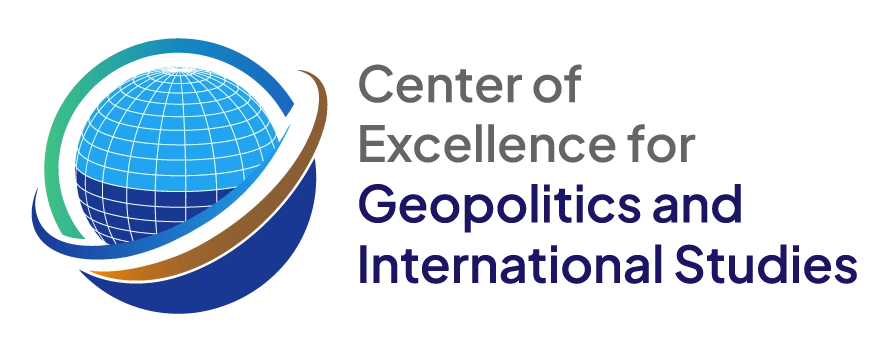Axis of Evasion’ challenges Western Sanctions
Dr. Vijay Sakhuja
The US and many of its allies such as the United Kingdom and the European Union have imposed political, diplomatic, economic and military sanctions against Russia, Iran, North Korea and Venezuela. Multiple restrictions have been imposed on their trade, fiscal assets have been frozen, materials have been confiscated, embargoes announced on arms export-import, and travel bans imposed on important state functionaries including business leaders. These countries are referred to as the ‘Axis of Evasion’ given that they have attempted to thwart sanctions by pursuing innovative methods and tools.
Earlier this month, the US announced sanctions against Gazprom Neft and Surgutneftegas the two Russian state owned oil producing companies engaged in exploration, production, and sale of oil. These companies and their subsidiaries have been identified as major source of revenue for funding Russian war against Ukraine. Also, more than two dozen of their subsidiaries have attracted sanctions for operating or having operated in the Russian energy sector.
Besides, 183 oil tankers including some tankers that transported both Russian and Iranian oil and are owned by operators in Russia have been sanctioned. These vessels have transported over five hundred million barrels of Russian crude oil which accounts for nearly 42 % of Russia’s crude oil trade. According to Vortexa , an analytics firm, as of December 2023, there were an estimated 1,649 vessels suspected to form part of the Ghost fleet of which 1,089 are tankers transporting Russian crude. 1400 Ghost ships are suspected to be in operations at sea and are known to buy improper or dubious insurance covers and shift registry and flag frequently to avoid detection. Russia tops the list of Ghost vessels accounting for over 400 vessels and these are engaged in transporting Russian oil and other related products. These new sanctions have not only pushed oil prices in the international market as well as forced China and India, the top two importers of Russian crude oil, to “get back into the compliant oil market to seek more supply from the Middle East, Africa and the Americas”.
North Korea has been subjected to international sanctions for several decades including by the United Nations. The UN Security Council passed several resolutions consequent to North Korean nuclear tests between 2006 and 2017 More recently, UN observed that the country’s proliferation related activities have been discovered in 38 of 54 African countries. These involve dual-use technology procurement smuggling and money laundering. North Korea is suspected of using its diplomatic missions particularly in Beijing, Berlin and Moscow in procuring military technology to support indigenous military complex. Also, Pyongyang’s diplomats as well as private citizens have acted as buyers, procuring a wide range of sanctioned goods for import to North Korea. For instance, between 2018 and 2021, O Yong Ho, a North Korean national based in Russia, was involved in buying missile related equipment for his country’s missile programme. Moscow even vetoed the UN’s “renewal of a panel of UN experts monitoring North Korea’s compliance with international sanctions”.
The US sanctions against Iran date back to the fall of the Shah of Iran in 1979 and these have been the “ most extensive and comprehensive set of sanctions” by the US against any country. Tehran has been accused of engaging in terrorism, nuclear and missile development programmes, proliferation of WMDs, undermining regional stability.
Iran’s economy and energy trade is adversely affected and arms procurements and sale are under international scrutiny. Iran is not deterred and have been trading its oil and gas to likeminded countries and has sold missiles, drones and other military hardware to Russia. In 2015, Iran accepted the UN Security Council Resolution 2231 and under the Joint Comprehensive Plan of Action (JCPOA) agreement agreed to pursue a peaceful nuclear programme which led to the lifting of nuclear-related sanctions against it. However, in 2018 President Donald Trump decided to withdraw from the deal stating that Iran had “used its new funds to build nuclear-capable missiles, support terrorism, and cause havoc throughout the Middle East and beyond”
Venezuela too has been under US sanctions for nearly two decades. In 2005 is was blamed for “lack of cooperation on US anti-drug and counter-terrorism efforts” and in 2006 the US prohibited “commercial arms sales and retransfers to Venezuela.” In 2015, it was accused of “policies undermining democratic processes” as well as violation of human rights. Under President Trump’s first term, in 2019, Maduro government’s “property and interests” in the US and “within the control of U.S. persons” were frozen.
It is evident that Russia, Iran, North Korea and Venezuela or the ‘Axis of Evasion’ have been successful in navigating the UN as well as US led sanctions. They will continue to redefine their engagements (bilateral or trilateral) through innovative strategic partnerships. It is fair to assume, the US and its allies and partners will not relent on imposing new sanctions.
Dr. Vijay Sakhuja is Professor and Head, Center of Excellence for Geopolitics and International Studies (CEGIS), REVA University, Bengaluru.
